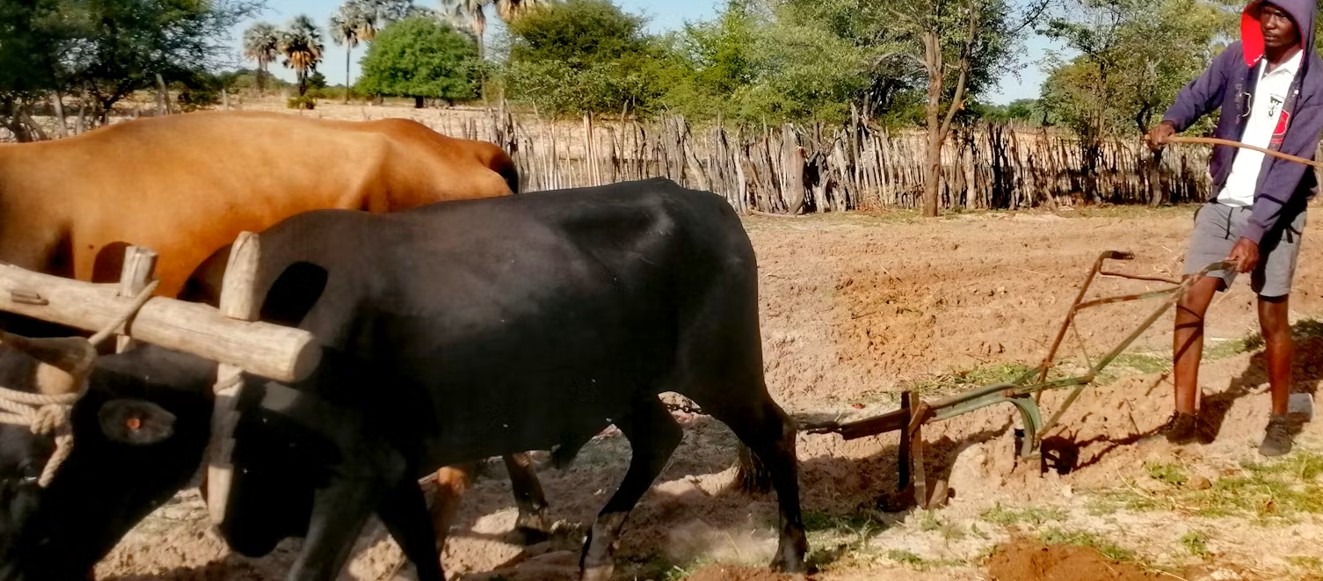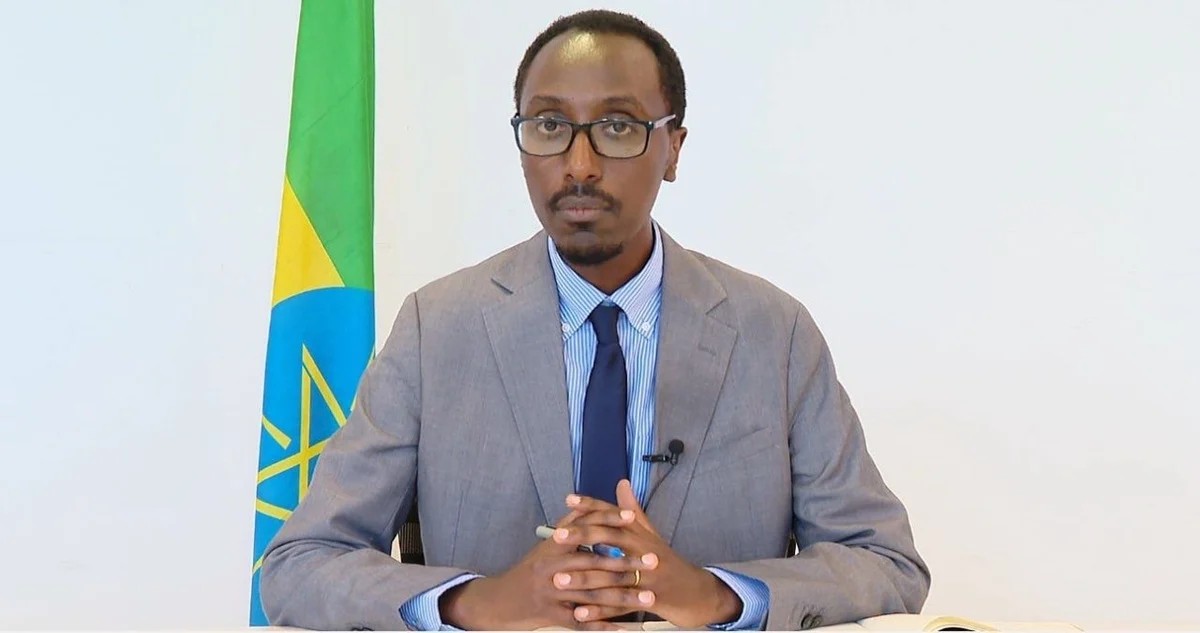Building Kenya’s financial future: Wealth through smart saving and spending

According to Thakar, the antidote to lifestyle creep is developing a disciplined financial mindset focused on delayed gratification and prioritising long-term goals over short-term pleasures.
In a tough economic climate, many Kenyans find saving difficult, not just due to low incomes, but because of avoidable financial habits that quietly undermine their ability to build wealth.
To help ordinary Kenyans regain control of their finances, The Eastleigh Voice spoke with economic analyst Mihr Thakar, who shared practical, insightful advice for navigating today’s challenging economy.
More To Read
- How Muthurwa’s young mothers are fighting child malnutrition with simple home-cooked meals
- CBK licenses 27 more digital lenders in bid to boost consumer protection
- Thinking of moving houses? Here are 10 tips that will save you stress, time and money
- Tenants can now sue landlords for withholding deposit refunds - court
- Over 30 civil servants face probe over suspicious increases in their assets
- Lamu, Mandera lead counties where tenants don’t pay rent - report
The hidden pitfalls: what’s really holding people back
Thakar identifies “lifestyle creep” as one of the most widespread but often underestimated financial traps affecting many ordinary Kenyans.
This phenomenon occurs when individuals increase their spending proportionally or sometimes disproportionately with their rising income, often prioritising luxury goods, status symbols, and social image over genuine financial stability and long-term wealth building.
“Very few people focus on building wealth that works for them. Instead, many remain comfortable living from hand to mouth, often blaming the economy for their situation,” explains Thakar.
“Meanwhile, there are individuals starting businesses, buying land, and steadily growing their money every day. When people receive a salary increase or a bonus, rather than directing that extra income toward savings or investments, they tend to upgrade their lifestyle,” he adds.
“They purchase bigger cars, take more expensive vacations, or splurge on luxury gadgets and fashion. This creates a subtle but persistent cycle that slowly eats away at resources that could otherwise be used to build lasting wealth.”
Thakar warns that this lifestyle creep can trap people in a “rat race” mentality, where rising income barely keeps up with escalating expenses.
“Bills grow larger, monthly payments on car loans, mobile loans or mortgages increase, and what once seemed like financial progress ends up locking you into living paycheck to paycheck. Yet you wonder, how someone is earning Sh100,000 broke?”
Consumer credit
Thakar says that this effect is compounded by the ease of access to consumer credit, particularly through digital lending platforms that have flourished across Kenya.
“Digital credit has revolutionised access to loans, but it has also made it dangerously easy for people to borrow impulsively. More and more, people are taking loans not because they’re in financial distress, but simply to maintain a lifestyle that exceeds their means,” he says.
He points out the psychological trap behind this borrowing.
“Loans are being advertised everywhere, on billboards, social media, and even through friends. Imagine this: your salary is already spent, and there are still two or three weeks left before the next payday. Then you see an ad or hear from a friend that they got a Sh5,000 loan from an app. But that’s just one of many; there are easily a dozen or more loan apps available, meaning there’s always more money just a tap away,” Thakar explains.
Social pressure
“On top of that, there’s immense social pressure to ‘keep up’ with peers, social media influencers, or family members who flaunt their wealth. This often drives people to borrow beyond their means. Unfortunately, this creates a vicious cycle of debt, where high-interest rates and repeated borrowing become the norm, making it increasingly difficult to break free.”
According to Thakar, the antidote to lifestyle creep is developing a disciplined financial mindset focused on delayed gratification and prioritising long-term goals over short-term pleasures.
“It starts with awareness, recognising where your money is going and consciously choosing to build assets instead of liabilities. Without this, financial freedom remains out of reach, no matter how much you earn.”
Why saving feels so hard
Despite earning a regular income, many Kenyans struggle to build meaningful savings.
Thakar attributes this largely to the absence of structured budgeting, a fundamental practice that, while simple, is often underestimated or neglected.
“Budgeting isn’t glamorous or exciting, but it serves as the financial blueprint that guides every decision you make. Without a clear plan, people tend to operate on impulse or hope, guessing their way through expenses and savings. This lack of clarity can quickly lead to overspending and missed opportunities to save,” Thakar explains.
He further emphasises the power of automation in overcoming these challenges.
“One effective strategy is to automate your savings, ideally by allocating 10 to 15 per cent of every paycheck into a separate account before you even see the money. This ‘pay yourself first’ approach removes the temptation to spend what you don’t have and ensures that saving becomes a consistent habit rather than an afterthought.”
Thakar also notes that budgeting is not about restricting enjoyment but about creating a sustainable balance.
“When you budget properly, you gain control over your finances and can plan for both your immediate needs and future goals, whether that’s an emergency fund, investing, or buying a home.”
Rethinking the mindset: save first, spend second
Perhaps the most profound transformation in financial habits, Thakar argues, is a psychological one.
“Many people treat saving as an optional or secondary task, something to do only after all bills are paid and discretionary spending is taken care of. But this mindset is exactly what keeps people trapped in financial instability,” he says.
Thakar stresses that saving must be reframed as a non-negotiable priority, not an afterthought.
“Saving is not what’s left over at the end of the month; it’s the very first financial commitment you make. Think of it as ‘paying yourself’, just like you pay rent, utilities, or groceries. When you internalise this, your entire approach to money shifts.”
This mental shift changes behaviour on a fundamental level.
Protect your savings
Instead of scrambling to save whatever might be left, you proactively protect your savings by budgeting around them.
This approach fosters discipline and builds resilience, empowering individuals to weather emergencies and invest in their future.
“It’s about respect for your future self,” Thakar explains.
“When saving comes first, it becomes easier to resist impulse spending and prioritise what truly matters.”
Where to start saving when you’re struggling
For many Kenyans feeling the strain of tight finances, Thakar emphasises the importance of building a strong foundation through three practical steps that can bring immediate relief and long-term stability.
First, build an emergency fund. Even starting with small, regular contributions can create a financial cushion that offers peace of mind when unexpected expenses arise, whether it is a medical bill, a car repair, or a sudden job loss.
“An emergency fund is your safety net. It prevents you from falling into debt when life throws curveballs,” Thakar explains.
Second, establish sinking funds. These are targeted savings accounts set aside for planned, recurring expenses such as school fees, insurance premiums, or holiday travel.
“By saving gradually for these predictable costs, you avoid last-minute financial pressure and reduce reliance on credit. It’s about foresight and control,” he says.
Third, conduct a thorough audit of your household budget.
This means critically examining every line item, asking hard questions about what’s truly necessary versus what can be trimmed or eliminated.
“Many people underestimate how much small, habitual expenses add up. Start calculating the price estimate of each item you will need for your household to get a rough idea of your expenses,” Thakar says.
“Redirecting funds from non-essential spending to your savings goals can accelerate your progress and improve financial health.”
Education and community support
Beyond practical budgeting, Thakar highlights the power of education and community support.
“Joining structured learning platforms like Abojani’s Personal Finance and Investment Masterclass can be a game-changer,” he says.
“These forums not only provide valuable knowledge on money management but also connect you with a network of like-minded individuals committed to improving their financial futures.”
In a landscape where misinformation and financial myths abound, such programmes offer guidance, accountability, and empowerment, all critical elements for lasting change.
“Financial literacy isn’t just about numbers; it’s about mindset, discipline, and the courage to take control,” Thakar emphasises.
Saving vs. Investing: What comes first?
Thakar uses a striking analogy to simplify the relationship between saving and investing: “Saving is the pipe. Investing is the destination.”
He explains that saving creates the essential flow of money, like a pipe channelling water, ensuring funds are consistently set aside. But it is investing that turns those savings into real growth over time, much like the destination where the water eventually pools and expands.
For beginners, Thakar recommends starting with low-risk investment options such as money market funds or collective investment schemes. These provide a safer environment to grow savings gradually while minimising risk, helping build confidence before moving on to more complex investment vehicles.
Tech tools to help you save smarter
Technology has made saving easier than ever, with mobile banking apps and money market platforms offering personalised goals, automated contributions, and timely reminders to support financial discipline.
Thakar emphasises that while technology provides the tools, consistent use and self-discipline remain crucial. Without a committed mindset, even the best apps will not translate into real savings or financial growth.
A word to young professionals
For those just stepping into the workforce, Thakar offers a grounded yet empowering message: “Habits will shape your financial future, but only hard work will truly build lasting wealth.”
He stresses the importance of starting early and remaining consistent, urging young earners not to wait until they feel their income is ‘enough’ to begin saving.
“Even setting aside as little as Sh200 regularly cultivates discipline, and that discipline is one of the most valuable assets you can develop.”
Armed with the right mindset, effective tools, and unwavering discipline, Kenyans across all sectors and income levels have the power to break free from the common pitfalls that hinder wealth accumulation.
With deliberate action and education, they can confidently navigate the complex financial landscape, making informed decisions that build not just short-term security but sustainable, long-term financial wellness.
Top Stories Today














































